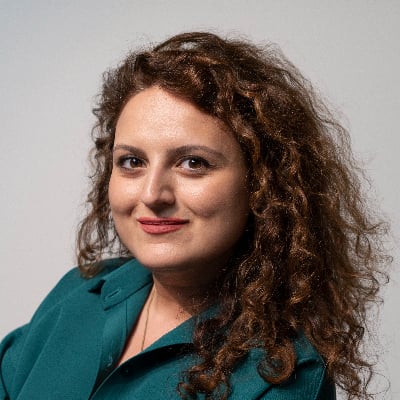The issue of presenting and engaging in the virtual realm is crucial for users, businesses, government entities, cultural organizations, and media outlets. It’s hard to envision the promotion and establishment of any initiative or idea today without the competent use of digital platforms.Armenia faces significant challenges in the digital realm despite its widespread use. The market is not appealing to major tech companies such as Google, Meta, Apple, and Amazon. As a result, this lack of presence leads to various issues, including security threats and the unequal distribution of advertising revenues.
The Multilateral Information Institute suggests establishing the “Digital Ambassador” position in Armenia to address these issues. Media.am interviewed Aleksandr Martirosyan, the head of programs at the Multilateral Information Institute, to learn more about this initiative.
The “Digital Ambassador” concept is a new term in our narrative. What institution and system are we talking about?
The “Digital Ambassador” is intended to represent the state and society in their interactions with global technological platforms. This role aims to safeguard the digital rights of the Republic of Armenia and its citizens while fostering a trustworthy digital business and public environment. One of the ambassador’s primary responsibilities is to advocate for the protection of democracy and human rights in the digital sphere, as well as to uphold the principles of free internet usage, media, and freedom of speech.
The “Digital Ambassador” concept has been developing for a long time. What are the basic principles of the discussed document?
The concept is based on the primary activities of the “Digital Ambassador.” First, it aims to provide digital representation. Armenia has no official or practical connection with significant organizations such as Google, Meta, Apple, Amazon, etc. Frequently, individual citizens, the government, and the media encounter numerous problems that either remain unsolved or are addressed very slowly. It becomes evident that many issues arise due to a lack of prompt action. The dissemination of disinformation during the COVID-19 pandemic, which could potentially cost lives, serves as a prime example of the situation I mentioned.
One of our key responsibilities will be to assist in the negotiations concerning Internet governance regulation and new technologies. In practical terms, this means supporting the development of concepts related to the digital environment and security issues and creating legislative initiatives, regulation mechanisms, and strategies.
Those mechanisms may refer to the field of cyber security and may be aimed at combating hate speech and disinformation. The problem is to support the state at the legislative level so that the terms digital domain and digital security become more understandable and tangible.In this concept, we give a significant place to the fact that these regulations should not hinder people’s freedoms. Here, the most prominent discourse unfolds, for example, on freedom of speech and restriction of hate speech.
I understand that the concept also pertains to issues in the media. What specific problem-solving formula does it offer, and how would implementing the “Digital Ambassador” institute bring about change?
Yes, there are many challenges for media in Armenia today; for example, they cannot monetize their content on the platforms of tech giants, are subjected to cyber attacks, and are blocked for the content they publish due to unnecessary complaints from users. For instance, if a media outlet posts a story about an incident on Monte Melkonyan Street, Facebook might block the page because “Monte” is a flagged keyword associated with terrorism. The “Digital Ambassador” role aims to ensure that reputable media can function smoothly without being unnecessarily blocked by automated systems or other factors.
It will also play an important role in combating disinformation and managing crisis communication. The Digital Ambassador will disseminate accurate information and coordinate responses during crises or emergencies.
The concept has been in development for about a year. You have met representatives from various fields and had discussions. How do you envision the positioning of the “Digital Ambassador” institute?
should instead be integrated into the state structure. However, it is essential to include representatives from the public sector to ensure that the state does not use the ambassador role solely for its own purposes. The ambassador could either be attached to the Prime Minister’s office or operate under the Ministry of High-Tech Industry. This position would involve maintaining relationships with major social media platforms and organizing regular meetings with representatives from the public, state, business, and media sectors.
We have met with representatives from state departments, the Ministry of Foreign Affairs, the Prime Minister’s Office, as well as public sector and media representatives. We listened to their ideas and suggestions.
What issues did media representatives identify in the concept, and what proposals did they present?
During the meeting, representatives from the media industry proposed the creation of a “Digital Ombudsman” institute to operate under the HRD office.
The primary concern was that the institute wouldn’t have the authority to decide independently. They suggested including media representatives in the structure to participate in discussions and decision-making on media-related issues.
The concept is still in its early stages. We are currently examining the areas of activity to propose formulations and definitions that meet the needs of Armenia and to clarify the scope of powers and responsibilities.
In the near future, we plan to present a brief version of the concept to the Prime Minister. We already have an agreement and confirmation of a meeting with the president. Additionally, we will meet with the “Digital Ambassador” of Estonia to learn about the working principles of a similar structure operating in Estonia.







